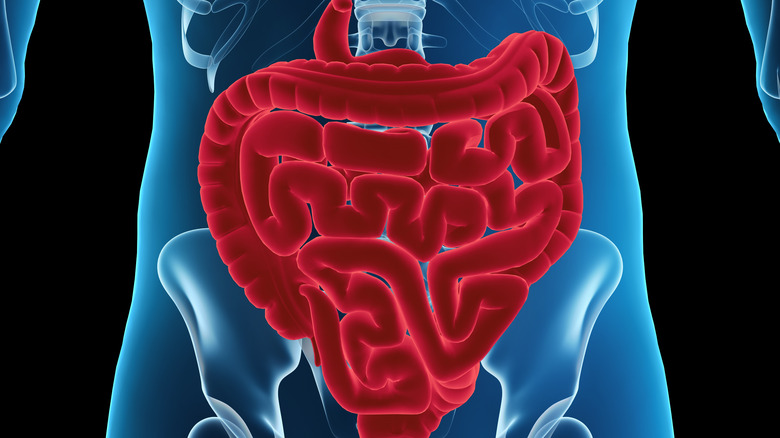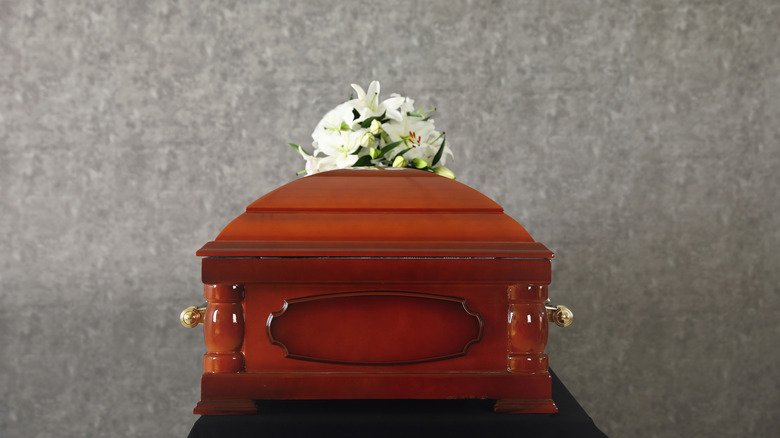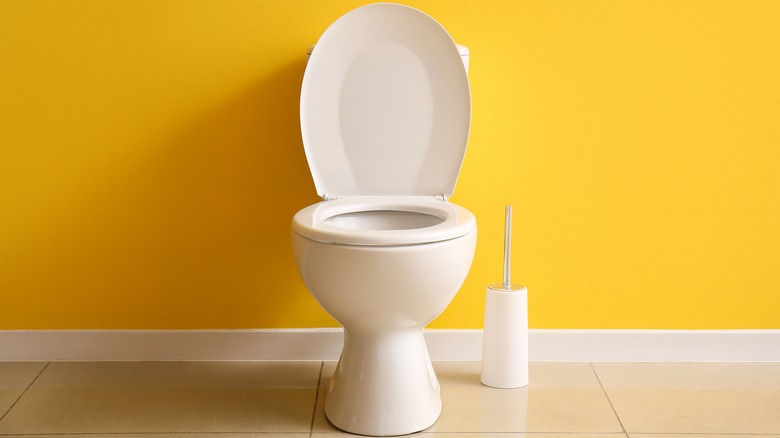Why People Pee And Poop After They've Died
Death's effect on the human body is revolting to most, and those who work cleaning it up have to have pretty strong stomachs. The presence of urine and fecal matter at crime scenes for example — along with blood, fluids, and guts — is a common and unfortunate biohazard that many professionals have to deal with. In the moments or days following our deaths, our corpses often expel pee and poop as a normal side effect of the death process.
How this happens exactly varies. While bodily death is an inevitability for everyone except cryogenically frozen billionaires, violently soiling yourself as you exit, isn't. The manner in which your bowels and bladder release their remaining contents depends on many factors, including how much you've eaten, what medication you are on, and how you died. Many of us will also lose bladder and bowel control before we pass on anyway, depending on whether a debilitating illness takes us to the grave.
The final release
In the period shortly after we die, from our brain to our sphincter, our muscles begin to relax before finally stiffening again in rigor mortis. At the same time, the parts of your brain that regulate urination and bowel movements cease to function, and the gaseous buildup in your intestines creates the perfect conditions for a final release. These factors combined make a veritable pee and poop-storm more or less inevitable.
According to the National Crime Scene Cleanup service, how and how violently your final pee and poop happens varies a bit depending on the manner of your death. People who die in car accidents or who have suffered an unusually traumatic end are the most likely to have a particularly violent expulsion when they die, possibly evening during the event. In general, however, the bowels and bladder empty quite slowly over the course of several days.
At the same time, whatever gross stuff is left in your bowels will also be removed at some point anyway, taken out by a helpful mortician. When a body is cleaned up for burial or cremation, people who work in the funeral service will often clean out the bowels as well and may even add incontinence pads to keep your clothing clean in the coffin.
Not everybody poops
If soiling yourself seems like a pretty undignified way to end your days fear not — not everybody poops the moment they expire. In many cases, a sick person will lose their appetite as they grow ill, or else their desire for food as well as their bowel movements may be affected by any medication they are on.
You also won't necessarily have to die to have a bout of incontinence. Many very sick people are warned that they will lose control of their bowel and bladder function before their death, not after. In such cases, nurses and doctors have ways to help patients deal with this process with dignity. Neurological conditions, such as repeated strokes can affect bladder function, meaning that many dying people will have a catheter inserted before they pass.
Finally, a surprisingly high proportion of people die on the toilet anyway. According to the Journal of Environmental Health and Preventative Medicine, around eight to 10% of heart attack patients die on the john — meaning there is an outside chance you may have gone or be going when you go.


